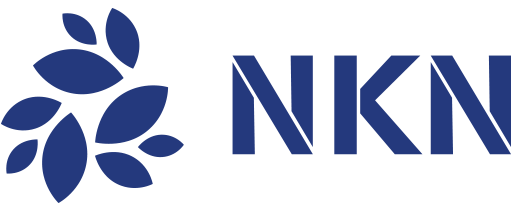Sybod
- Have you considered a different token model, including double token model to incentivize more holders and miners? If yes, is it possible that there will be a change announced soon?
Answer: We have been thinking long and hard on the token economy and how to boost it. And we actually have an almost ready draft.
To disappoint you, it is not a dual token model. But the idea is to make NKN tokens more useful for more applications, further incentivize mining, and using fiat revenue to purchase tokens to pay for NKN products running on NKN network.
- Rebrand?
Answer: Yes and no. NKN.org and New Kind of Network is not super famous, but at least many people know about it as a promising public blockchain project. Getting rid of it will only reduce our brand capital.
However, we do need different branding and corporate identity for the for-profit company and the products that are built on top of NKN. We have collected some of our own ideas as well as community suggestions. Some of the criteria are: easy to pronounce in most languages, lively and fun, and convey the image of NKN. If you have any good suggestions, please feel free to propose. We plan to finalize before or around mainnet launch.
- NKN team in numbers, how many developers are in the team at this moment full time and how many people in business development? Will you start hiring to progress faster after mainnet?
Answer: Developer question already answered above.
In addition, we have a strong community developer circle. They have developed blockchain browser, wallet, mining portal, SDK in different languages, and more. Even more people have contributed to creating marketing and technical content, and promote NKN by their own initiative. This is the strength of open source community.
Since we already started to launch products, more staffing forces will be placed on sales and customer support, as well as developers to work on new features. We are always actively looking for quality candidates to expand our team, Beijing office currently has openings for engineering and business development. Submit your resume to [email protected] if you want to join the NKN team!
- We haven’t heard yet anything specific about these telco companies, when are we going to hear first bits, this year? This is as exciting as when Samsung partnered with Enjin. How’s the progress with carriers/isps? Can these partnerships have profound impact on NKN ecosystem?
Answer: Carriers and ISPs are some of the biggest companies in the world, and they are also some of the slowest moving customers. We are still engaging with them regularly, but our latest two products have clearly shifted our focus towards enterprise and developers.
We believe these two products will create short to medium term real adoption, as well as revenue. These revenues can be used to purchase tokens to pay for NKN services.
The carriers and ISPs are still in our business development funnel, albeit on a slower burner.
- How do you plan to attract devs after setting the foundation with the mainnet release? Not always the best platform wins, we need rich community of developers for NKN to succeed.
Answer: open sourcing code and launching mainnet do not automatically guarantee that developers will come. Yanbo has been an open source contributor for many years, starting with his WiFi driver for Linux kernel networking. His observation is that the technology has to be interesting, and the core developers have to be high quality and good people. Often money is not the main driver.
Our main focus is really to make the project meaningful, interesting, a bit challenging, very welcoming, and fun. I quote a recent tweet from our community developer Christian who built nknx.org together with Andrew: “I’m still flashed by how much I learned on creating the @nknX_org project. The most important one is that participating in a community gives you something that money can’t buy: a network of people who do what they love and lots of new impressions and knowledge! Thank you, @NKN_ORG!”
Once we unlock the foundation tokens, we do intend to use it to reward community developers and members who make significant contribution to NKN.
- Do you plan aggressive marketing for mainnet and rest of the year to raise awareness about the project and attract people? By aggressive I mean real change from the current way marketing is done. Most people in crypto don’t know about NKN yet. I feel you got the best tech, but you gotta know how to sell it.
Answer: I agree that preaching to our own choir via existing Telegram members, Twitter followers, and Discord channels are not enough. Awareness and growing the audience should be our biggest goal for mainnet, product launch, and the rest of the year. And we have allocated enough budget for this plan.
We will use a combination of social/viral marketing with traditional industry focused PR/marketing. For example, once we can announce our main media customer for our nCDN product, we do intend to use traditional media as well. That includes both crypto specific media like CCN, Coindesk, Crypto Briefing, as well as technology focused media like Forbes, Fortune, WSJ, Techcrunch, and etc.




